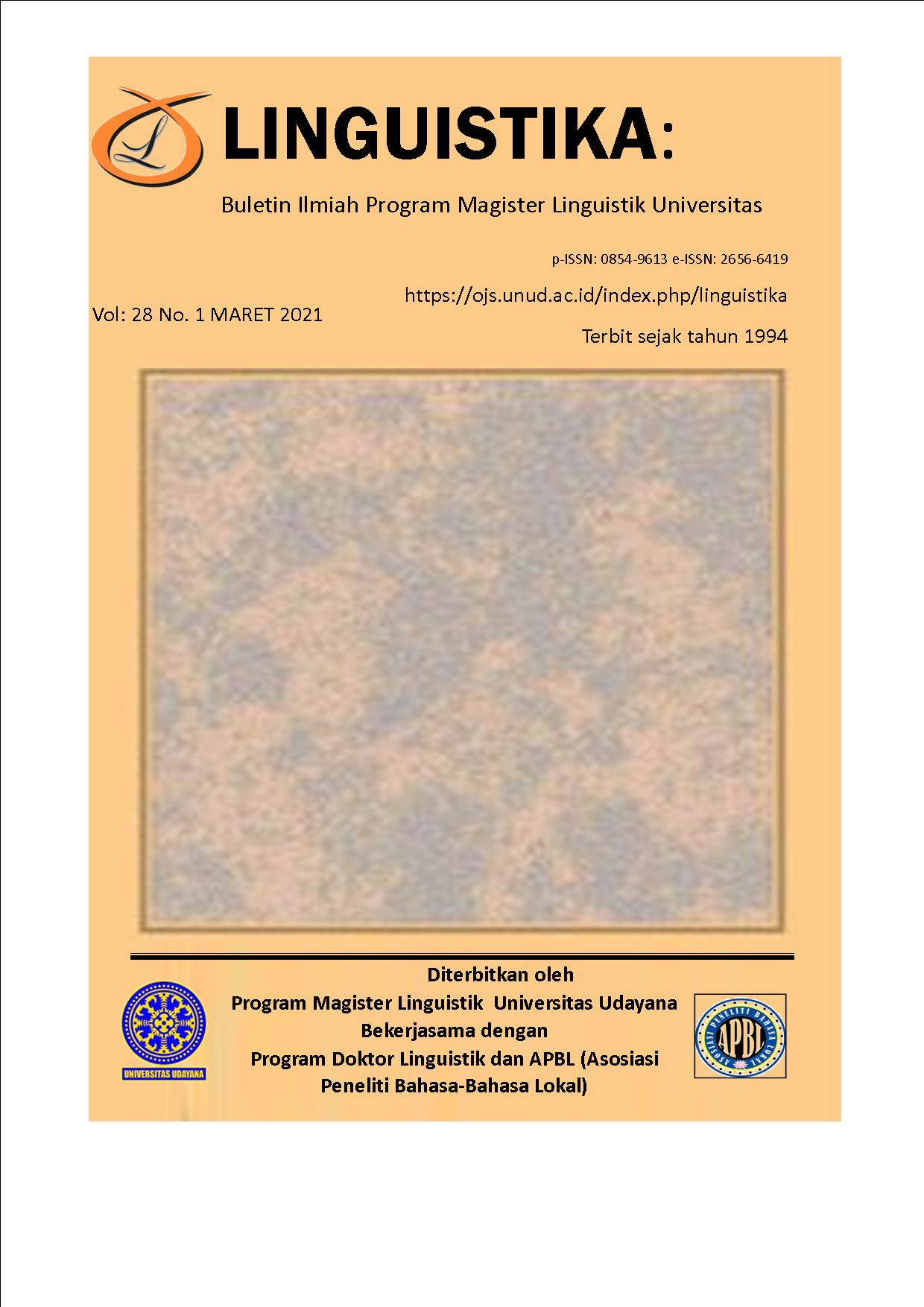Jenis Proses Dalam Sistem Transitivitas Pada Teks Mitigasi Aktivitas Erupsi Gunung Agung, Bali Tahun 2017
Abstract
This study aims to determine the types of processes in the TRANSITIVITY system in the text of mitigation the eruption activity of Mount Agung, Bali (TMAEGAB) in 2017 issued by the Center of Volcanology and Geological Hazard Mitigation (PVMBG), Geological Agency, Ministry of Energy and Mineral Resources of the Republic Indonesia. This research was conducted to better understand the experience described by speakers (PVMBG) of phenomena to speech partners through the types of processes and semantic characteristics of the process elements in the TRANSITIVITY system, which is included in the study of functional systemic linguistics. This study uses a qualitative descriptive approach in which data collection uses the observation method with note-taking techniques. In analyzing the data, using the split method with techniques for direct elements (BUL) and its advanced techniques. Then, in presenting the results of the analysis, formal and informal methods are used with inductive and deductive techniques. The results of this study found that the number of processes that are most widely used in TMAEGAB is the type of relational processes 417 (35.8%), mental processes 247 (21.2%), material processes 205 (17.6%), ergative models 158 (13 , 6%), existential processes 77 (6.6%), and verbal processes 61 (5.24%).













